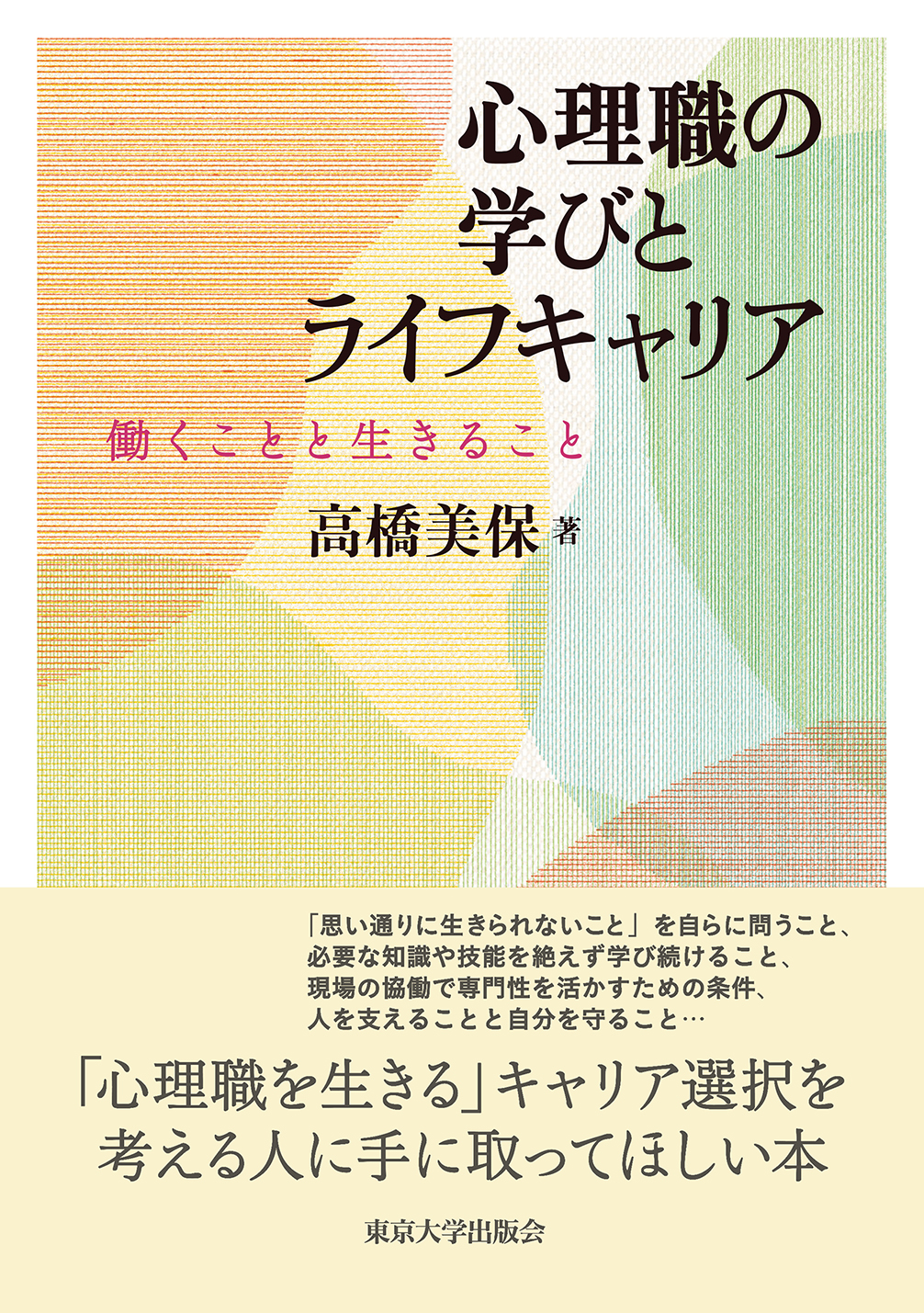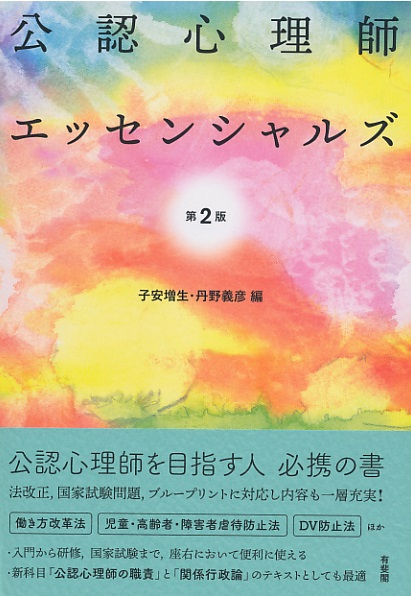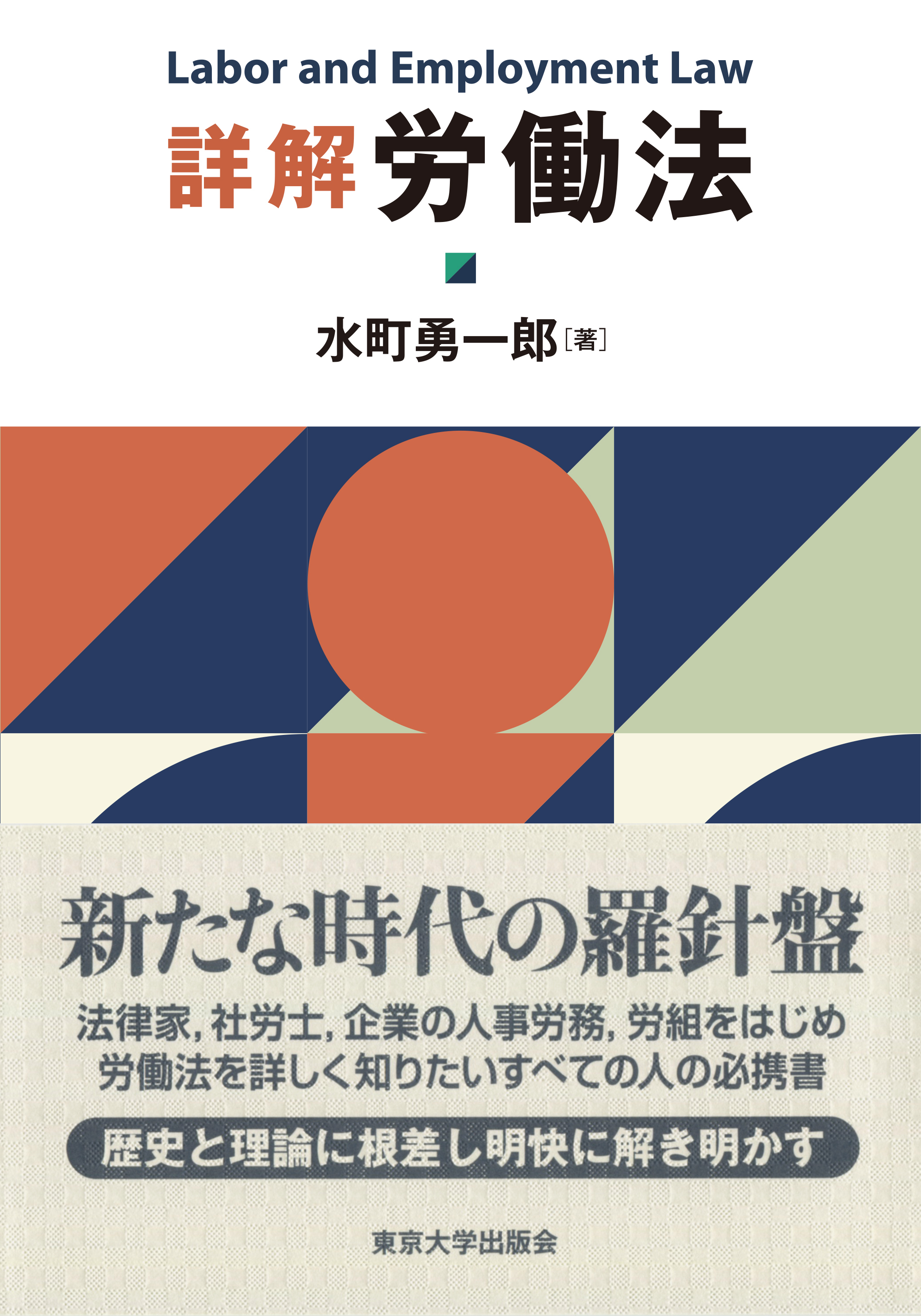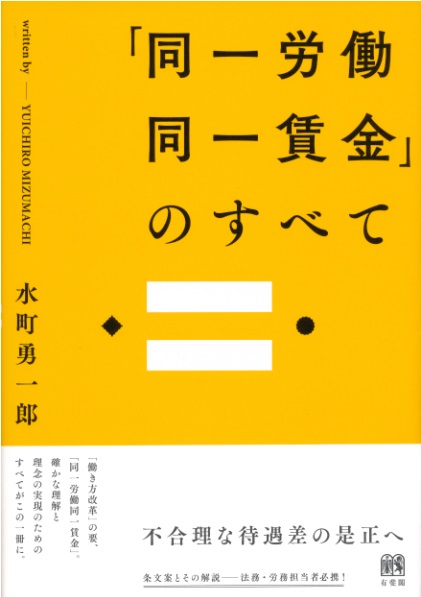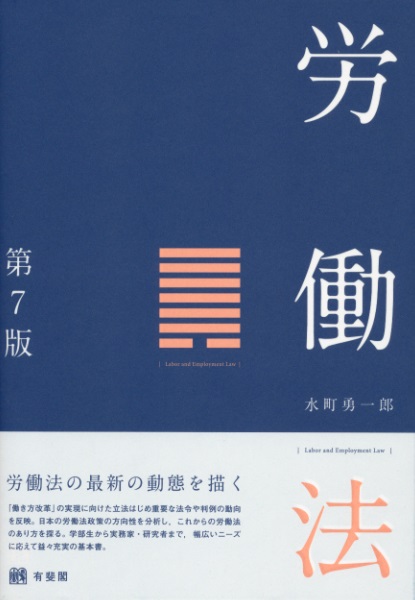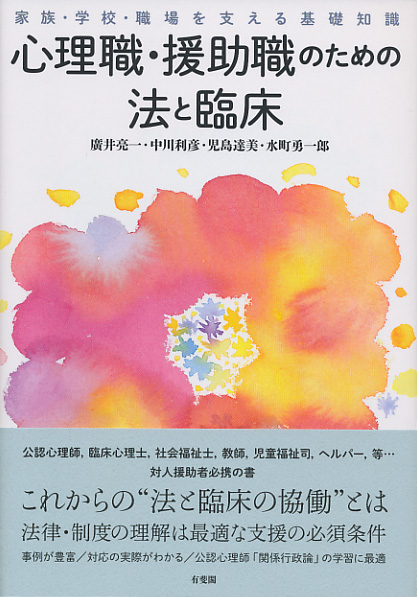
Title
Shinri-shoku,enjo-shoku no tame no hō to rinshō (A Legal and Clinical Guide for Psychology Practitioners and Support Personnel - Basic Knowledge Related to Working with Families, Schools and in Workplaces)
Size
256 pages, A5 format, softcover
Language
Japanese
Released
February, 2019
ISBN
978-4-641-17438-2
Published by
Yuhikaku Publishing
Book Info
See Book Availability at Library
Japanese Page
This book provides basic knowledge on the relevant laws and legal aspects that certified psychologists, clinical psychologists, social workers, and other human services professionals (HS professionals) need to know in carrying out their work. It offers much more, however, than legal explanations.
HS professionals need to learn more than just the laws. They need to be able to adapt their knowledge to the constantly changing requirements of their work. It is of critical importance to know the clinical repercussions of legal interventions and how to apply such interventions effectively.
In the same way, clinical theory and techniques in psychology are not enough to protect children and other vulnerable people. Professionals cannot respond to emergencies if they lack knowledge of the laws and systems that apply and do not know how to activate them for specific issues or disputes. The correct application of the legal system enables HS professionals to provide optimal assistance and services.
This book examines the diverse issues that HS professionals encounter in their work and offers a compilation of practical knowhow bridging law and clinical application
In recent years, Japan has seen an increase in social issues related to juvenile delinquency, child abuse within the family, disputes over child custody arising out of divorce, domestic violence (DV), and abuse of the elderly. In schools, there are problems with bullying and physical punishment, and in the workplace, diverse kinds of harassment and overwork.
All of these issues share both legal and clinical aspects. For example, distortions in family relationships—between husband and wife, parent and child, and among relatives—invariably have legal ramifications such as divorce, domestic violence, abuse, and support issues. Solving these kinds of family disputes requires both a legal approach and a clinical approach addressing the underlying distortion of family relationships.
Distortions of the environment in which children live, their families, schools, and society in general, are likewise being reflected in problems of delinquency and bullying. When these kinds of problems get taken up by family courts or child welfare offices, efforts towards resolution within the family or school have to comply with juvenile and child welfare laws. As this shows, coordination of legal and clinical aspects is necessary to solve the problems of interpersonal relationships within families, schools, and workplaces.
At various stages, HS professionals are drawn into the disputes and concerns of people they are trying to help in families, schools, and workplaces. They can respond appropriately and give suitable advice when they are equipped with a good understanding of the purpose and basic principles of the relevant laws, as well as the procedures that need to be followed. This book offers an explanation of the legal principles relating to human services that need to be considered while implementing clinical approaches. Hopefully, it will serve as a beacon of support for HS professionals.
(Written by MIZUMACHI Yuichiro, Professor, Institute of Social Science / 2020)



 Find a book
Find a book


 eBook
eBook